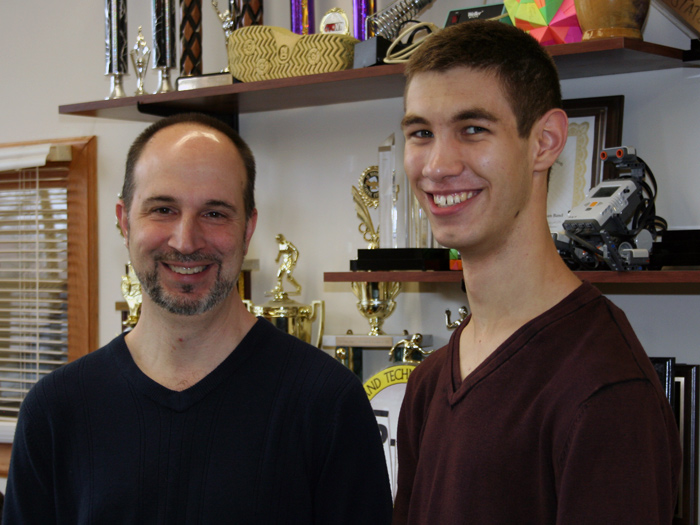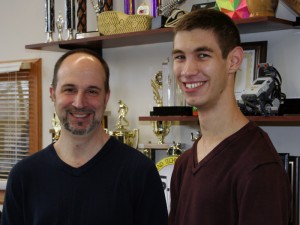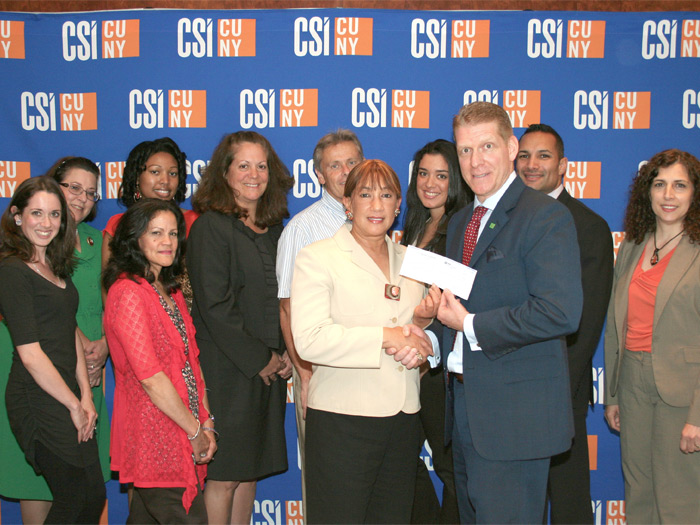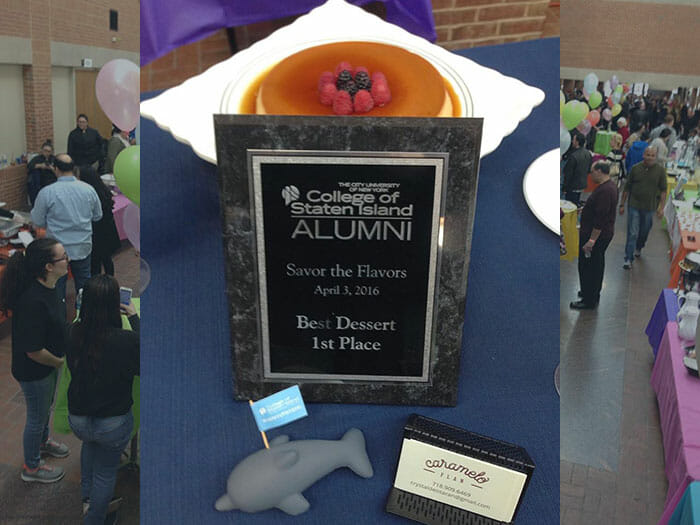The College of Staten Island has always taken part of the longstanding tradition of serving the community’s needs as well as those of the campus. In keeping with CSI’s commitment to community, CSI Assistant Professor of Physical Therapy Michael Chiacchiero and Staten Island Tech high school student Christopher Micek recently collaborated on a project that earned Christopher a semifinalist spot in the prestigious INTEL Science Talent Search.
“Working on a long-term project such as this one has been a tremendously rewarding experience, and taking part in research of this caliber has probably been one of the best choices I could have possibly made in high school,” said Christopher, adding, “I must give Dr. C credit here, he gave me a large amount of freedom to pace and direct the project however I wanted across the entire duration, and I feel it has given me a rock-solid foundation for conducting future research in college.”
Since 1998, Intel has sponsored the national competition, which is, as stated on their Website, “designed to recognize student achievement and inspire innovation in science, technology, engineering, and math.” The Intel Science Talent Search is referred to as the “junior Nobel prize,” and its finalists are awarded scholarships ranging from $7,500 to up to $100,000 for the winner.
Finalists from the competition have gone on to win MacArthur Foundation “Genius” grants, the National Medal of Science, and several have even been awarded the Nobel Prize.
Christopher’s project, “Effects of Physical and Motor Imagery Training using the Wii Fit on the Maintenance of Standing Balance,” made him Staten Island’s only semifinalist, placing him in the top 300 out of 1,700 entrants. The work focused on helping the subjects to maintain and increase their balance by playing a combination of games on the Wii Fit peripheral, such as a table tilt game, a game where players use the balance board to make sure a virtual ball does not fall off a table.
“The purpose of the series of games was to test, and possibly improve, a subject’s balance,” Professor Chiacchiero noted.
The collaboration began three years ago after Professor Chiacchiero had completed mentoring a previous high school student who was awarded a Bezos grant. After that experience, Professor Chiacchiero offered to mentor another high school student for a longer project. Christopher was part of the group that started as sophomores in 2011,” Chiacchiero said. “His project started with high school students as his subjects until he was referred to a subject with osteogenesis imperfecta (brittle bone disease), who would become the subject for his Intel project.
In his role as mentor, Professor Chiacchiero helped Christopher “coalesce his ideas into a workable project,” and admits that Christopher “had no shortage of ideas.”
Regarding his role as mentee, Christopher said he is grateful to Dr. Chiacchiero “for the many brainstorming sessions we’ve had, and helping me with experimental design and statistical analysis, as well as providing the force platform for assessing balance. He is a constant source of inspiration for me, and I could not have asked for anyone better. Short answer: He’s the best! I hope Staten Island Tech and CSI continue to foster the collaborative relationship we share for many years to come.”
Professor Chiacchiero cited CSI Interim President William Fritz’s commitment to the community as one of his many reasons for mentoring Christopher as well as several other high school students over the past few years. “As college professors,” Professor Chiacchiero stressed, “I feel we have the responsibility to mentor future scientists. If we can reach them in high school, we can have an even more significant impact on their lives.”
In the fall, Christopher will be attending Johns Hopkins University in Baltimore, MD, where he plan to major in Biomedical Engineering and Physics, and probably pursue an eventual career in those areas. In the meantime, he is currently working on a proposal for a new project at SI Tech that will seek to verify whether poor postural control is a predictor of ankle sprains for student-athletes, and whether some type of balance intervention (such as video games or motor imagery) may reduce this risk.



![[video] Franc D’Ambrosio’s Broadway – “The Phantom Unmasked”](https://csitoday.com/wp-content/uploads/2014/09/phantom.jpg)
![[video] “Trouble on the Border: How Drugs and Violence Have Shaped Place”](https://csitoday.com/wp-content/uploads/2014/03/beef-cattle.jpg)













